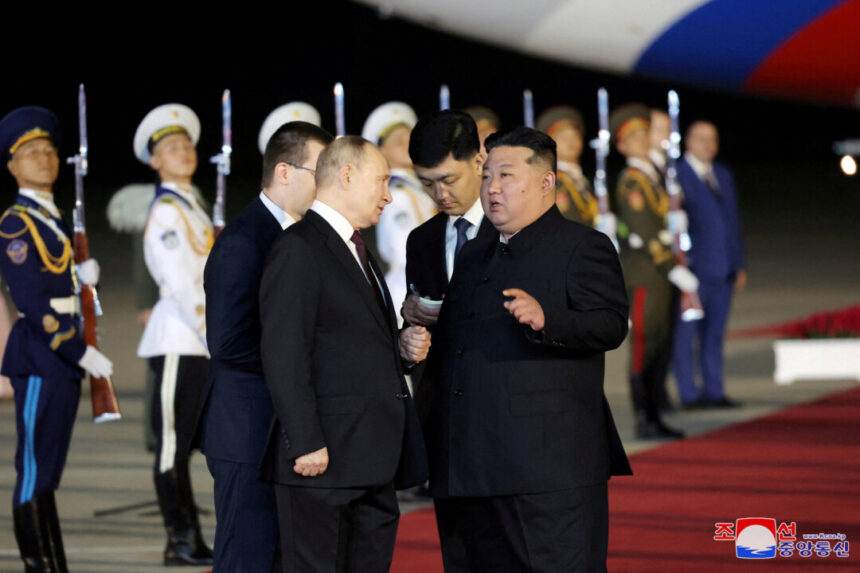The U.S. government has reported that up to 3,000 North Korean troops have recently arrived in Russia. This has raised concerns within the foreign policy community about potential North Korean involvement in the fighting in Ukraine. Defense Secretary Lloyd Austin confirmed the presence of North Korean troops in Russia, with estimates ranging from 3,000 to 10,000 troops.
While North Korea has denied these reports, Russian President Vladimir Putin seemed to acknowledge the presence of North Korean troops. The situation has sparked speculation about the intentions of these troops, with Ukrainian leaders expressing concerns that they may join the Russian side in the ongoing conflict.
If North Korean troops do enter the war, it could help offset Russian losses after years of attritional fighting. The Pentagon estimated that Russia has suffered around 600,000 casualties so far in the conflict. The White House has expressed concerns that Russia seeking manpower from North Korea could indicate weakness on the part of the Kremlin.
The potential deployment of North Korean troops in Ukraine has raised alarm bells, with House Intelligence Chairman Mike Turner calling it a “red line.” He urged the U.S. to consider relaxing limits on Ukraine’s use of U.S.-donated weapons if North Korean troops become involved in the conflict. Turner also suggested that the U.S. should be prepared to take direct military action against North Korean troops if they invade Ukrainian territory.
The situation is complex, with various experts offering different perspectives on the implications of North Korean involvement in the conflict. Some believe that North Korean troops may not significantly alter the course of the war, while others warn of the need for a strong response to prevent further escalation. The U.S. administration is in discussions with allies and partners to determine the appropriate next steps in response to this development. We can avoid NATO sending 10,000 troops in response. DiMino also cautioned against the deployment of Western troops in Ukraine, as it could potentially involve the entire NATO alliance in the conflict, bringing multiple nuclear-armed nations into the fray.
It is possible that North Korean forces might support the Russian war effort without entering Ukraine, particularly in helping Russian forces push back a Ukrainian incursion into Russia’s Kursk region. Davis and DiMino both agreed that limiting North Korea’s involvement to the Kursk region could be less provocative than if North Korean troops entered Ukraine.
Former U.S. Ambassador to Ukraine John E. Herbst stated that even if North Korean troops are deployed to the Kursk region, it would still be unacceptable for Russia to claim they are merely defending Russian territory. The Ukrainian Defense Ministry’s Intelligence Directorate reported sightings of North Korean troops in the Kursk region, but the U.S. side had no further information to share.
Russia may view North Korea’s assistance as a way to offset combat losses, while Pyongyang may see it as an opportunity to gain modern battlefield experience. North Korea might also expect military technology advancements from Moscow in exchange for their help in Ukraine.
The strained relations between Russia and the West have led Moscow to seek partnerships with other countries like North Korea, Iran, and China. Caution should be exercised in responding to North Korean troops in Russia to avoid further incentivizing Russia to align with such partners.
The assessment of North Korean troops in Russia coincided with the BRICS summit hosted by Russia, where representatives from 40 countries attended. While Russia may seek new partnerships due to strained relations with the West, there are potential complexities in its relations with China.
Russia’s growing ties with North Korea may serve as a counterbalance to China’s dominance in their diplomatic relations. Can you please rephrase that?
Source link






